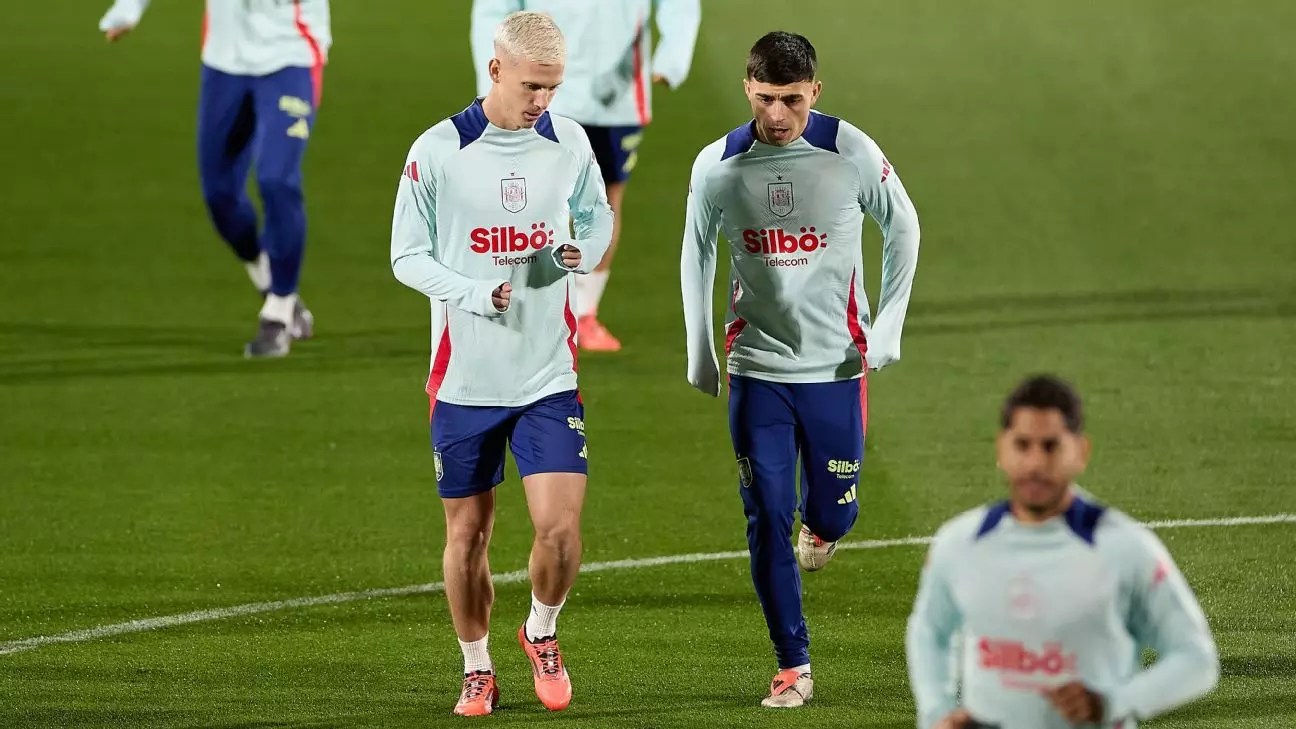The realm of professional football is often enveloped in drama, with issues surrounding player registrations and national team selections frequently making headlines. Recently, the situation concerning FC Barcelona midfielder Pedri took center stage when he responded to rumors that Barcelona’s roster was contemplating a boycott of the Spanish national team due to issues surrounding the registration of teammate Dani Olmo. This situation not only reflects the intense pressures that players face but also sheds light on the legal and procedural complexities that can influence player availability on both club and international stages.
The assertion by the Catalan media outlet TV3 that Barcelona players were ready to refuse national team duties in solidarity with Olmo created ripples throughout the football community. However, in a press conference held in Jeddah, Pedri vehemently dismissed these claims as unfounded. “People said the Spain national team players wouldn’t go [to play] but I heard that and was surprised by that, it’s a lie,” he stated. This denial is crucial as it addresses the potential rift that could have formed within the national team framework, particularly when camaraderie and collaboration are pivotal in the competitive landscape of international football.
Pedri’s love for representing Spain was evident in his comments, reinforcing the bond that players often share with both their club and national teams. By labeling the rumors as lies, he aimed to quell any speculation that might have arisen, reinforcing the idea that the commitment to the national team remains a priority for the players involved. This point underlines how important it is for national teams to function cohesively, especially ahead of critical matches like the Spanish Supercopa final against Real Madrid, which carries significant implications for both history and prestige in Spanish football.
The context of this controversy lies in the complexities of La Liga’s regulations and Barcelona’s ongoing struggle to navigate its financial limitations. Dani Olmo and fellow player Pau Víctor faced de-registration due to Barcelona’s failure to meet specified deadlines related to squad spending limits. The club’s attempts to comply were recognized, yet La Liga’s initial refusal to re-register the players opened the door for tensions to escalate. The subsequent involvement of the Spanish Sports Ministry (CSD) added another layer, as they temporarily allowed the players to be re-registered while the broader appeal is evaluated.
Pedri reflected on the emotional turmoil that Olmo endured during the registration saga, acknowledging the difficulties faced by the player knowing he could be barred from participating at various levels. “It’s good news for us,” he stated regarding the CSD’s injunction, emphasizing the team spirit that characterizes Barcelona’s locker room. His candid remarks illustrate not only the human element of football but also the vital roles that teammates play in supporting one another during challenging times.
This scenario extends beyond the immediate concerns of player registration. La Liga’s ongoing examination of the CSD’s decision highlights the league’s firm stance on maintaining financial regulation adherence. While many clubs reacted critically to the intervention, suggesting it undermines financial controls, Pedri downplayed these disputes, stating that every club is entitled to its perspective. His focus on team dynamics rather than external controversies speaks to the priority he places on collaboration within Barcelona’s ranks, showcasing the necessity of unity amidst external pressures.
Furthermore, this situation poses significant implications for how clubs might manage player registrations moving forward. The potential for appeals and interventions raises questions about the robustness of current regulations and whether more transparent guidelines should be implemented. The dynamic between player welfare and financial accountability will need thorough reevaluation as clubs jockey for position within the constraints of evolving regulations.
Pedri’s comments reveal much more than merely a denial of boycott rumors; they signify a broader commitment to the ideals of teamwork, loyalty, and resilience in the face of adversity. His steadfastness and encouragement of his teammates illustrate the essence of sportsmanship that transcends mere competition. While the road ahead remains fraught with regulatory hurdles and decision-making challenges, it is the human ties among players that will ultimately prevail. As Barcelona looks towards its final showdown in Jeddah, the focus should remain on the pitch—where true unity can thrive, irrespective of administrative challenges.


Leave a Reply